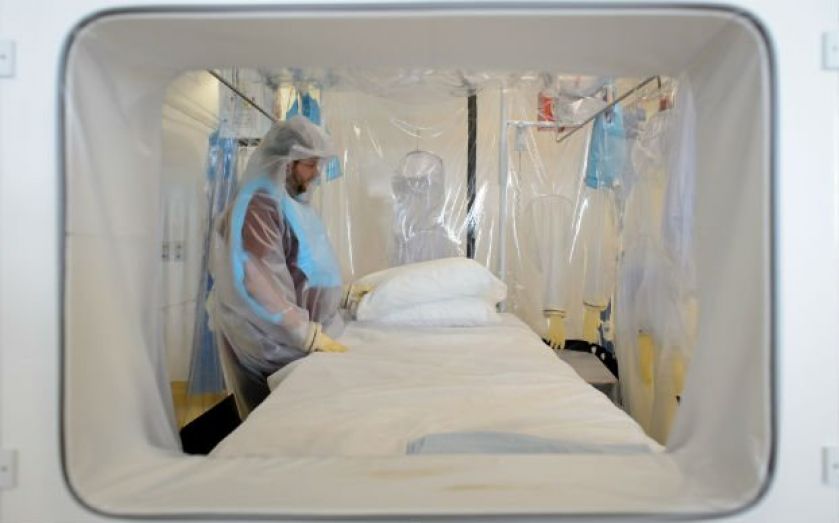| Updated:
Ebola diagnosis sped up with Japan’s 30-minute “sampler” test

Scientists in Japan have developed a test for Ebola which is much faster than any current diagnosis methods.
Researchers at Nagasaki University worked alongside Eiken Chemical Co to develop the new testing method, which they say uses cheaper and faster technology than anything available already.
As a result, they claim it can be used in places without an adequate power supply because it is conducted using a “small, battery-powered warmer.” By comparison, the tests currently used for diagnosis require “dedicated equipment and a stable supply of electricity.”
The new technique works by using a strand of DNA called a “primer” to magnify Ebola genes in a blood sample taken from a patient. It takes just 30 minutes to determine whether or not they have contracted Ebola.
The Polymerase Chain Reacrion (PRC) technique most widely used to test for the virus takes two hours to come to such a conclusion. This is because the full process involves heating and cooling the blood samples a number of times.
"The new method is simpler than the current one and can be used in countries where expensive testing equipment is not available," said Jiro Yasuda, a professor at Nagasaki University.
"We have yet to receive any questions or requests, but we are pleased to offer the system, which is ready to go.”
The Ebola epidemic currently spreading through West Africa began in Guinea in February. It has since spread to Liberia, Sierra Leone and Nigeria. Last week Senegal reported its first confirmed case.
By 26 August, there had been 1,752 confirmed cases and 897 confirmed deaths. As you can see from the chart below, Sierra Leone and Liberia have been hit the hardest.